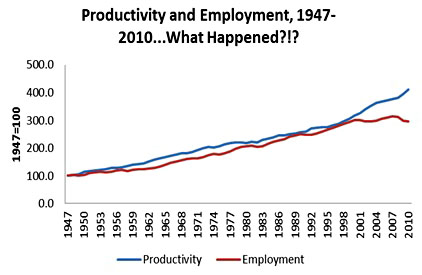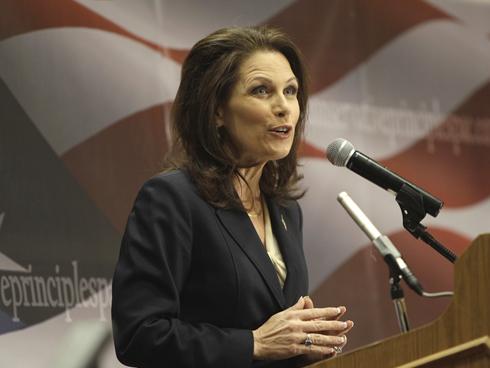
Someone said today on Twitter that “I don’t want to live in a world where Shaq retires and Ghaddafi doesn’t,” and I agree completely. Shaq has been playing for almost twenty years and that’s pretty much my entire sports lifetime. Considering that I’m 26 and started watching sports around ’91 or ’92, I feel like Shaq isn’t just another player, but an institution like the game of basketball itself. How do we move on from this point? Let’s just hope he doesn’t consider this an opportunity to restart his rap or acting careers. However you feel about Shaq personally, I don’t think there’s any doubt that he has one of the best Twitter feeds out there and I continue to encourage fans to follow him because it’s one of the few things on the internet that’s actually worth doing.
Like some of his previous forays into mass media, namely Shazaam and Shaq Fu, THE_REAL_SHAQ blurs the line between unintelligible train wreck and sublime performance art. The posts run high on stream-of-consciousness and low on spell check, and range from short words of wisdom (usually self-attributed) to his signature one-liners (always capped with “lol” ’cause, you know, it’s a joke). I could go on, but the man’s bio says it best: “VERY QUOTATIOUS, I PERFORM RANDOM ACTS OF SHAQNESS”.
Shaquille O’Neal, the man with four rings, 28,596 career points and scores of nicknames, has finally decided to call it quits, ending one of the most colorful careers in NBA history that will surely culminate with a Hall of Fame induction.
“I’m going to miss the competition. I’m going to miss, you know, the chase for the ring. You know, I’m actually going to miss everything,” O’Neal said on “SportsCenter” on Wednesday.
He added: “Father Time has caught up with Shaquille O’Neal.”
O’Neal, 39, revealed his retirement earlier Wednesday using the new social media tool Tout, a real-time video messaging service, to announce to fans: “We did it. Nineteen years baby. I want to thank you very much, that’s why I’m telling you first, I’m about to retire. Love you, talk to you soon.”
“Once a businesman, always a businessman,” O’Neal said with a smile later Wednesday. “I am the emperor of the social media network.”
An inveterate prankster who gave himself a new nickname — or several — in each of his six NBA cities, O’Neal said he wasn’t prepared yet to reminisce about his long and prolific career, which produced three championships with the Los Angeles Lakers and one with the Miami Heat. “Let’s save that for the press conference on Friday,” said O’Neal, who will hold that media event at his Isleworth home.
Celtics spokesman Jeff Twiss says that O’Neal has not notified the team of his plans.
“Shout out to @SHAQ on the hall of fame career. One of a kind player,” Celtics teammate Rajon Rondo tweeted Wednesday.
“He’s a giant,” commissioner David Stern said Wednesday at the NBA Finals in Miami. “He’s physically imposing; he has an imposing smile. In the game, he imposed his will, and he has done it for quite a long time. It’s been a great run here, and we’re going to miss him greatly. We hope we can find ways to keep him involved in the game.”
Stern added later in a statement: “On behalf of the NBA, its teams, and his millions of fans around the world, I want to thank Shaq for everything he has meant to the league and to the sport of basketball, both on and off the court. We wish him and his family all the best.”
O’Neal retires fifth all-time with 28,596 points, 12th with 13,099 rebounds and second only to Artis Gilmore among players with more than 2,000 baskets with a .582 field goal percentage.
“I’m a little bit sad,” said Pat Riley, the Heat president who was also the coach in 2006 when O’Neal won a title in Miami. “It’s the end of an absolute 20-year career. Great, great player. … The league’s going to miss Shaq. I’m sure Shaq will do something big and beyond.”
LeBron James tweeted: “What a career for Shaq Diesel!! The most dominating force to ever play the game. Great person to be around as well. Comedy all the time!!”
O’Neal, who’s a shoo-in for the Hall of Fame, said he isn’t sure which team he’ll enter under.
“I’m a humble and modest person so hopefully I get inducted. Let’s just start there first,” O’Neal said on “SportsCenter.” He added, “We’ll just have to wait ’til that happens, and then I’ll make that decision.”
At each stop, he endeared himself to the fans and his new teammates with his effervescent smile and playful attitude, including the habit of adopting a new nickname he felt embodied his role with his new team. In Phoenix he was the “Big Shaqtus”; in Boston, the “Big Shamroq.”
O’Neal signed a two-year contract with the Boston Celtics last summer but a persistent Achilles injury will prevent him from fulfilling the terms of the deal. O’Neal first injured his right Achilles on Christmas Day and was able to play in only two of the final 35 games of the regular season.
On April 3 against Detroit, O’Neal returned to the court after a two-month absence and scored six points in a spirited 5 minutes and 29 seconds before coming up lame and limping off the floor. Although his injury was listed as a strained calf, O’Neal said it was the Achilles flaring up again.
“I felt like someone had shot me in the back of my leg,” he said.
O’Neal did not play again in the regular season. He sat out the first-round playoff series against the New York Knicks, then tried to return in Game 3 of the Eastern Conference semifinals against his old team, the Heat. O’Neal logged 8½ minutes in the 97-81 victory but woke up in considerable pain the next morning. His final game was two days later, when he toiled for three minutes of Game 4 before Celtics coach Doc Rivers pulled him for good.
In the final weeks of the the playoffs, O’Neal, over the objections of team physician Brian McKeon, had “more than five” cortisone shots in his Achilles in an attempt to play against the Heat.
“Doc (McKeon) kept telling me, ‘No, no,’ but I wanted to play so badly,” O’Neal said. “My feeling was, ‘If it ruptures, it ruptures.’ The Celtics were so good to me I wanted to do everything I could to get back on the court for them.”
Throughout his time on the sideline, O’Neal said, he continued to do rehab as well as work on the treadmill and the exercise bike. He swam each evening at the Thoreau Club in Concord and shot a number of late-night free throws at the Lincoln-Sudbury High School gymnasium across the street from his rented Sudbury home. He lost 35 pounds and was “feeling great everywhere except for that one little spot behind my heel.”
O’Neal said McKeon recommended surgery that would “clean up” the area around the Achilles, but O’Neal said the recovery time would be close to nine months.
“I really, really thought about coming back,” he said, “but this Achilles is very damaged and if I had it done the recovery would be so long we’d have same outcome as this last year — everyone sitting around and waiting for me.
“I didn’t want to let people down two years in a row. I didn’t want to hold Boston hostage again.
“I’m letting everybody know now so Danny (Ainge) and the organization can try to get younger talent. I would love to come back, but they say once the Achilles is damaged it’s never the same. I don’t want to take that chance.”
O’Neal said his final months in Boston included some of the darkest days of his career because “I just hated to let the city of Boston down. I really grew to love the place. Everyone was so welcoming to me and treated me so great. They believed in me and they took care of me, especially the great people of Sudbury. I love that town.”
O’Neal also had effusive praise for Rivers, whom he said was “one of the best I ever played for.”
“I thought Doc was fabulous,” O’Neal said. “He stressed ‘team’ all the time, never wavered on that. He kept everyone together. He’s an amazing coach. I want to congratulate him on his five years (contract extension).
“He deserves it. He loves the organization, loves the players, and we all love him back.”
O’Neal is acutely aware the Celtics posted a record of 21-4 when he was able to play 20 or more minutes this season. The chemistry he shared with the Big Three (Kevin Garnett, Paul Pierce and Ray Allen) and Rondo, O’Neal said, will be an enduring memory, leaving him to wonder what would have happened had he stayed healthy.
“We were supposed to win this year but ‘supposed’ doesn’t count,” he said. “The path was there for us. All the so-called superpowers were gone — L.A. (Lakers), San Antonio. I really feel if I was on the court we would have done it, but I don’t believe in ‘ifs.'”
O’Neal will be remembered as one of the most dominant, recognizable and controversial figures in the game, whose body of work included rap records, movies, a lengthy business portfolio and an even lengthier history of philanthropic deeds.
O’Neal embraced social networking, amassing more than 3.8 million followers on his Twitter account and keeping them informed on his “random acts of Shaqness” — like sitting in Harvard Square, pretending to be a statue, or going out in drag on Halloween.
“I tried to make people happy,” O’Neal said, “and I tried to have fun. I think I did both.”
O’Neal was a franchise-saver when the Orlando Magic made him the No. 1 overall pick in the 1992 draft. He took them from the lottery to the playoffs in two years, and then led them to the NBA Finals in his third year before they were swept by the Houston Rockets.
O’Neal then signed with the Lakers in 1996 and had his greatest success there, winning three titles alongside Kobe Bryant and coach Phil Jackson. But amid tension between O’Neal and Bryant over credit for the team’s success, O’Neal was traded to the Heat in the summer of 2004, fresh off a loss to the Detroit Pistons in the Finals.
“Shaq had a long and amazing career, with a huge impact both on and off the court,” Lakers owner Dr. Jerry Buss said in a statement released by the team. “His contributions were significant to the entire NBA, but we specifically appreciate what he did with and what he meant to the Lakers during his eight years with us. We have three championships that we wouldn’t have won without him, and we will forever be grateful for his significant contributions to those teams.”
After 3½ years in Miami, a tenure that included his fourth NBA championship, O’Neal became a veteran-for-hire, moving to Phoenix and then Cleveland and finally Boston. But he couldn’t deliver another title for Steve Nash and Amare Stoudemire with the Suns, with James with the Cavaliers or with the Celtics.
“I think Shaq was the most dominant big man of his era. He changed the game,” former Lakers teammate Brian Shaw told ESPNLosAngeles.com’s Arash Markazi.
He added: “The amazing thing about him was with somebody of his size, that he was as nimble as he was. He could dance and run and do anything physically that somebody who was 5-10 could do. That’s unheard of for a man his size. I don’t know if we’ll ever see that again.
With his basketball career behind him, O’Neal said he has a lot of things to fall back on, including pursuing his doctorate in human resource development at Barry University in Miami.
“If all goes well, I will be Dr. Shaquille O’Neal in December or January,” O’Neal said on “SportsCenter.” “That’s my main focus right now, but, you know, I’ve got a lot of stuff going on. I’m a business man. I own a couple of businesses. But right now I guess I could sit and take care of my body, get my body back.”
In all, O’Neal averaged just 9.2 points, 4.8 rebounds and 20.3 minutes this season while playing in 37 games — all career lows.
“I’m glad that he retired. I think it was time,” former guard Tim Hardaway said. “He was hurting his legacy. You don’t want to see anybody hurt their legacy when they’re going out. I think a lot of people are happy he didn’t go through that pain of waiting too long. And I think it was tough for everybody to watch Shaq when he was playing hurt like that at the end of this season.”
And that left O’Neal in the market for a new nickname.
After announcing his retirement, he asked fans to give him a nickname that befit his retirement. He reported at about 5 p.m. that “The Big 401K” was the leader.
“I know you can do better, though,” he said in another video. “I’m here all day. I’m retired.”
42.992712
-88.387734




























































